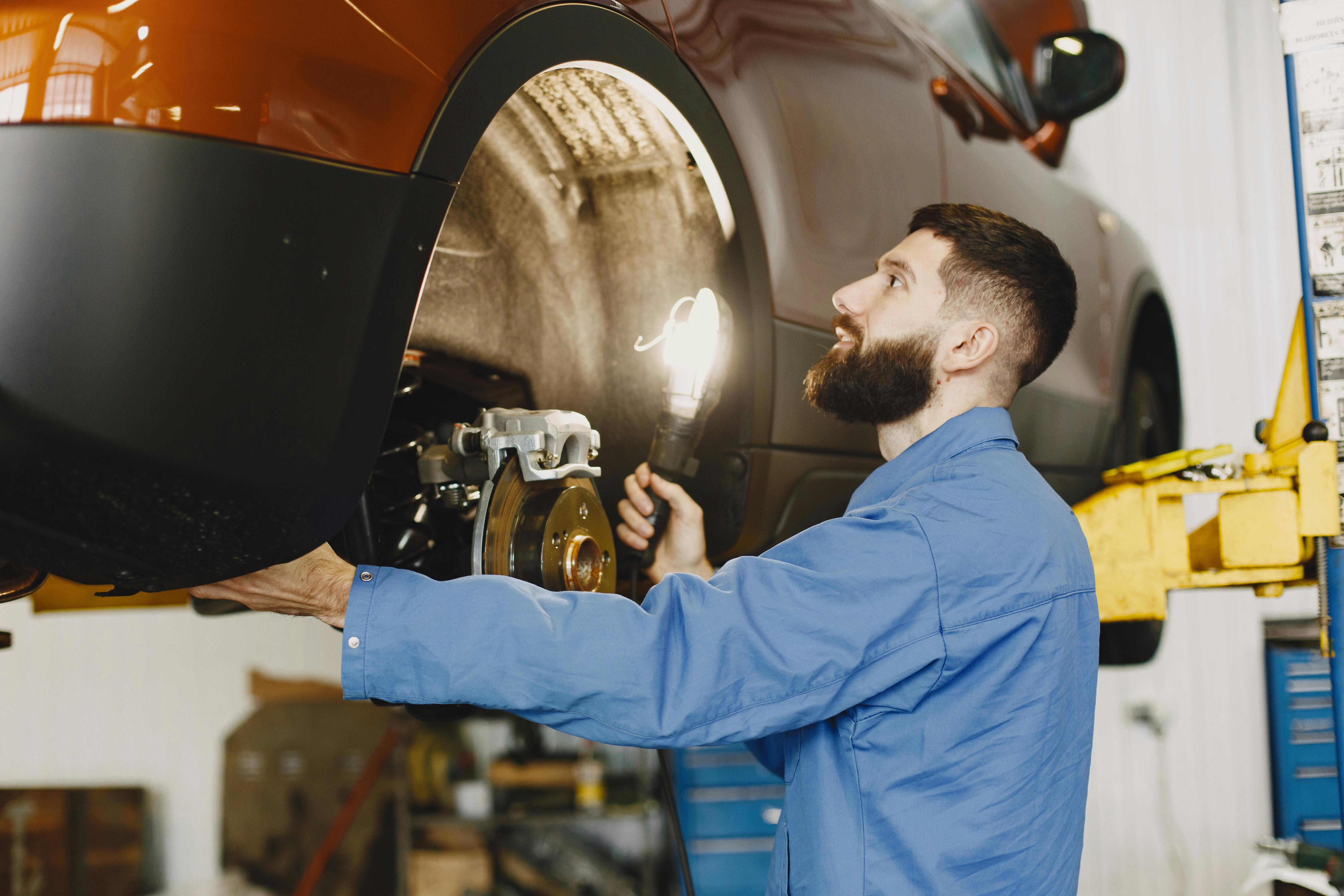Car trouble isn't always easy to diagnose. If your ride feels rough, your steering feels off, or you hear unusual noises, you might assume your suspension is the problem. However, many other vehicle issues—such as tire wear, braking system malfunctions, or steering misalignment—can cause similar symptoms. That's why visiting trusted car suspension repair shops is the best way to get an accurate diagnosis and prevent unnecessary repairs.
Understanding the difference between suspension problems and other vehicle issues can help you determine when to seek professional car repair in Puyallup WA.
Signs of Suspension Problems
A well-functioning suspension system helps absorb shocks, improve stability, and ensure a comfortable drive. When it fails, you may notice several key warning signs:
- Excessive Bouncing: If your car doesn't settle quickly after a bump, your shocks or struts could be due for replacement.
- Steering Difficulties: Difficulty turning the wheel, especially at lower speeds, could indicate worn suspension components.
- Uneven Tire Wear: A failing suspension can lead to uneven pressure on your tires, causing them to wear down unevenly.
- Pulling to One Side: If your car drifts left or right without steering input, your suspension may be misaligned or have a damaged component.
- Clunking or Knocking Sounds: Strange noises while driving over bumps often signal issues with worn or loose suspension components.
If you notice any of these signs, it's best to visit professional car suspension repair shops to inspect and address the issue before it worsens.
Could It Be Your Tires?
Suspension issues are commonly mistaken for tire problems. If you experience vibrations, pulling, or instability while driving, worn or underinflated tires might be the real cause. Here's how to tell the difference:
- Vibrations at High Speeds: If your car shakes at highway speeds, it could be due to tire imbalance rather than suspension problems.
- Uneven Tread Wear: If one side of a tire is more worn than the other, it could indicate poor alignment or improper tire inflation.
- Low Tire Pressure Warnings: If your dashboard alerts you to low tire pressure, your handling issues may be due to underinflated tires rather than a suspension failure.
To rule out tire problems, check your tire pressure and inspect tread wear regularly. If issues persist, visit an auto repair shop for a professional assessment.
Braking Issues vs. Suspension Problems
Faulty brakes and worn-out suspension components can both cause handling difficulties, making it hard to determine the source of the problem. Here's how to differentiate between them:
- Car Dips Forward When Braking: If your car leans forward when you apply the brakes, worn-out shocks or struts could be the culprit.
- Steering Wheel Vibrations While Braking: If you feel vibrations only when pressing the brake pedal, it may be due to warped brake rotors rather than a suspension issue.
- Delayed Braking Response: If your brakes feel spongy or less responsive, the issue is likely with your braking system rather than the suspension.
If you suspect brake issues, it's important to get prompt service. A full-service car repair shop can check both your suspension and brakes to pinpoint the exact issue.
Is Your Steering to Blame?
Sometimes, steering system problems can mimic suspension issues. If your vehicle is difficult to maneuver or doesn't respond properly to steering inputs, consider these possibilities:
- Power Steering Fluid Leaks: Low fluid levels can make turning the wheel feel stiff and unresponsive.
- Worn Steering Rack or Tie Rods: These components connect your steering system to your wheels. If they're worn, your car may feel unstable.
- Misalignment Issues: If your steering wheel is off-center or your car pulls to one side, poor wheel alignment could be the cause.
Because steering and suspension systems work closely together, it's best to have both inspected by trusted car suspension repair shops to ensure all components function properly.
The Importance of Professional Diagnosis
Since many car problems share similar symptoms, guessing the cause can lead to unnecessary repairs. A professional inspection at a reputable car repair shop in Puyallup can:
- Identify whether the issue is related to your suspension, tires, brakes, or steering.
- Prevent unnecessary part replacements by accurately diagnosing the root cause.
- Improve vehicle safety by addressing problems before they become severe.
If your vehicle isn't handling as smoothly as it should, visiting an experienced auto repair shop is the best way to find out what's wrong.
Related Articles:
- Your Car's Suspension Explained: A Complete Overview
- Essential Suspension Care: Tips to Prevent Future Repairs
Expert Auto Repair Services at Goods Automotive
When your vehicle needs expert diagnosis and repair, Goods Automotive is a name you can trust in Puyallup. Our expert mechanics offer comprehensive services, including:
- Suspension Repairs: From worn-out shocks and struts to full suspension replacements, our team ensures a smooth and stable ride.
- Brake Inspections and Repairs: If your brakes are causing handling issues, Goods Automotive provides expert diagnostics and reliable repairs.
- Tire and Alignment Services: Uneven tire wear and alignment problems can affect vehicle performance, and Goods Automotive offers precision adjustments.
- Routine Maintenance, Including Oil Changes: Keeping up with routine maintenance, such as an oil change in Puyallup WA, helps prevent major vehicle issues and keeps your car running efficiently.
If your car isn't handling as it should, don't wait for the problem to worsen.
Reach out to Goods Automotive, one of the most trusted car suspension repair shops, for expert diagnostics and high-quality service.

